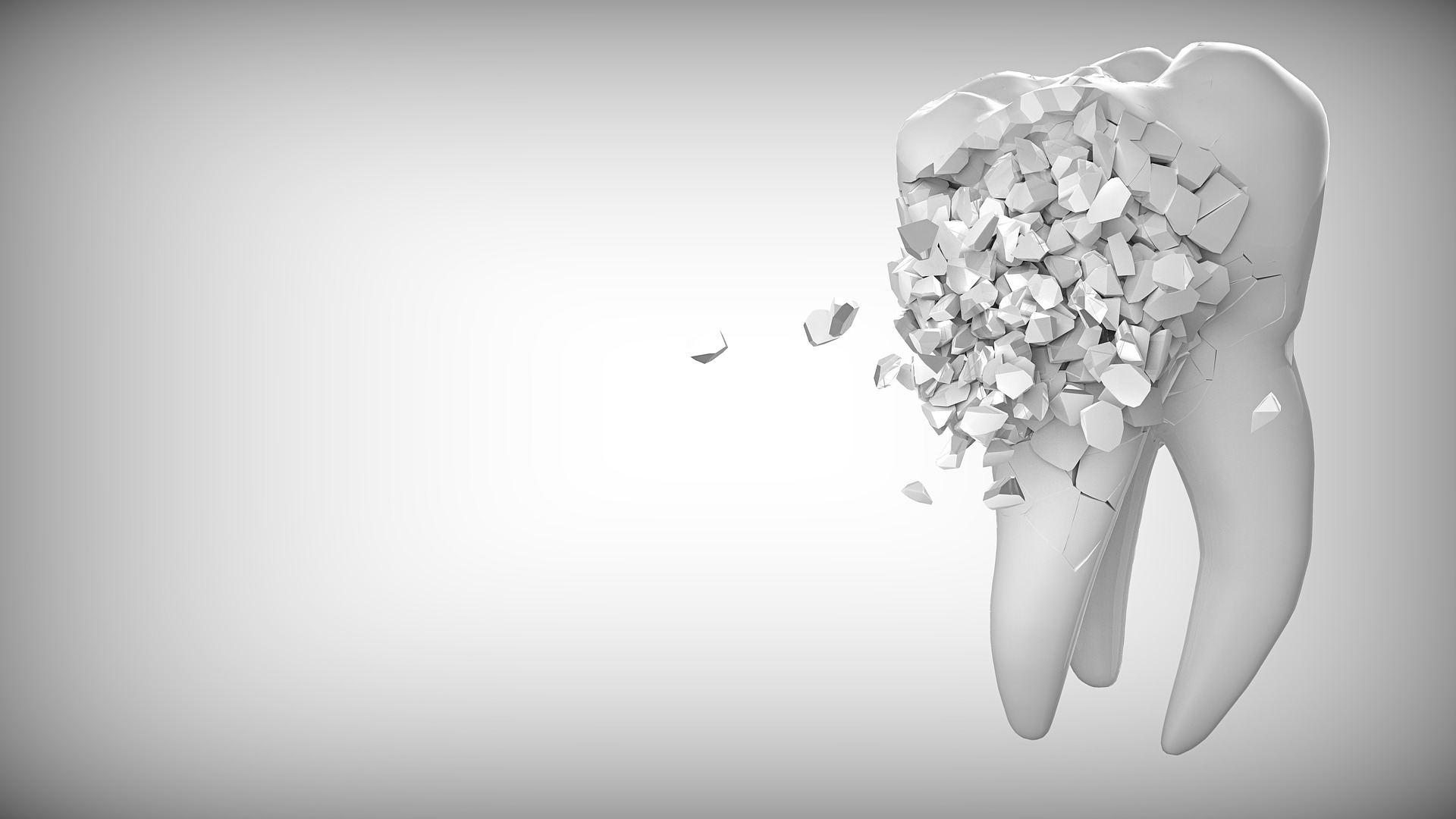Your teeth are the hardest parts of your body that you routinely use to bite, tear, crush and mash your food into palatable sizes. Then why can it be painful when you sip ice cold water or a hot drink?
You have sensitive teeth, and this can be a problem for countless adults. Why does this happen, how can you fix it, and how can you prevent it from happening again?
What Causes Teeth Sensitivity?
There can be many reasons why you are experiencing sensitivity to foods or drinks that have never bothered you before. Unfortunately, it’s difficult to pinpoint an exact reason without going to a dentist, but there are many common causes.
Parts of a Tooth
First, you have to understand the basic structure of a tooth. Starting from the enamel, the part you can see, these are the four layers or parts of a tooth:
- Enamel is the hard mineralized surface of teeth. It is the hardest substance in the human body and is 96% mineral. Because of its high make up of minerals, it is hard but brittle. It has no nerves or blood vessels and does not heal.
- Dentine is hard calcified tissue that supports the enamel covering it. It is less mineralized than enamel but is also less brittle. Dentine has a network of dentinal tubules that are filled with dentinal fluid.
- Cementum is a calcified substance encasing the root of a tooth below the gum line. It is softer than dentine and is a key supportive structure.
- Dental pulp contains the nerves and blood vessels of a tooth. The dental pulp also nourishes and hydrates the tooth structure, making the tooth more resilient, less brittle and less prone to fracture. Additionally, the dental pulp provides a hot and cold sensory function.
Any damage or infection to any of these structures can cause sensitive teeth, but most sensitive teeth are typically the result of worn tooth enamel and exposed dentine and tooth roots.
Common Causes of Teeth Sensitivity
Sensitive teeth can be caused by the following issues:
- Brushing too aggressively and with hard bristles
- Consuming too much highly acidic food and drink
- Poor oral hygiene leading to gum disease and tooth decay
- Gum recession that leaves your root surfaces exposed
- Grinding teeth at night
Common Ways Teeth Sensitivity Develops
The most common ways teeth sensitivity develops is when the outer layers of the teeth are worn away to expose the softer dentine and dental pulp (which includes the root canal).
Damage to enamel
How can enamel, the hardest substance of a human body, get damaged? The source of its high strength is also its weakness in a way. Enamel is made nearly entirely of mineral, which is subject to demineralization.
Acids found in food and drinks can cause the enamel to weaken, creating crevasses or holes.
As the outermost layer, it is also exposed to everything in your mouth—including the bacteria. Plaque is a bacterial film that will build up without sufficient cleaning. As you eat, so do the bacteria, which cause them to release an acidic by-product. The more sugary the foods, the more by-product the bacteria will release, which is extremely damaging to enamel.
With enough damage, the enamel will weaken and eventually expose the dentine. With the protective layer gone, your dentine and its network of dentinal tubules are exposed and will transmit all the changing sensations directly to your nerves.
Damage to cementum
Cementum is usually below the gum line. However, cementum can be exposed if a patient has gum disease like gingivitis. Because it is less hard than enamel, cementum can wear down from abrasion and friction from teeth brushing.
Treating Teeth Sensitivity
Having an appointment with your dentist is the first step in treating your sensitive teeth. Let your dentist know about your symptoms, when they started, and what can cause the pain.
Depending on the cause, your dentist may be able to treat it clinically or teach you how to treat it at home.
Common Treatments to Teeth Sensitivity
- Desensitizing toothpaste. After several applications, desensitizing toothpaste can help block the pain associated with sensitive teeth.
- Change your toothbrush. Toothbrushes with soft bristles are recommended to reduce enamel and gum erosion.
- Fluoride. Your dentist might apply fluoride to the sensitive areas of your teeth to strengthen tooth enamel and reduce pain. Desensitizing toothpaste often has fluoride as an ingredient.
- Bonding. Occasionally, exposed root surfaces can be treated by applying bonding resin to the sensitive root surfaces.
- Surgical gum graft. If a sensitive tooth has lost the supportive gum tissue around it, a small amount of gum tissue can be taken from elsewhere in your mouth and attached to the affected site. This can protect exposed roots and reduce sensitivity.
- Root filling. As a final option, your dentist might recommend a root filling—a procedure used to treat problems in the tooth’s soft core (dental pulp). While this might seem like a significant treatment, it’s considered the most successful technique for eliminating tooth sensitivity.
Contact Your Dentist
Most importantly, sensitive teeth are a strong indicator that you need to see your dentist soon. Treat sensitive teeth as a warning sign before you develop more severe pain. Our staff of expertly trained hygienists and dentists are ready to help you identify the cause of and treat your sensitive teeth.
Make an appointment at Vitality today.

